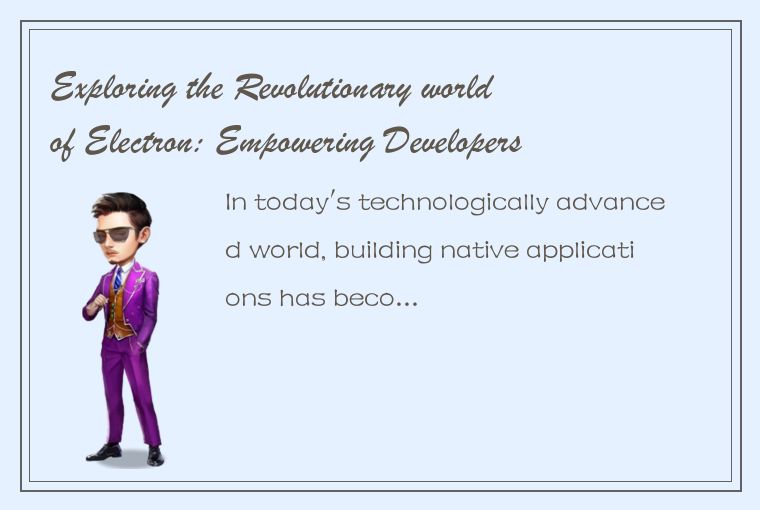In today's technologically advanced world, building native applications has become a vital part of the software development process. Native applications provide users with unparalleled performance, stability, and access to native features of a device or operating system. But building native applications can be a daunting task for developers who lack expertise in different programming languages and platforms. That's where the revolutionary world of Electron comes into play, empowering developers to build native applications with web technologies.

Electron is a popular open-source framework that allows developers to build cross-platform desktop applications using HTML, CSS, and JavaScript. It was first developed by GitHub for their Atom editor, and later open-sourced as an independent project. The framework allows developers to create desktop applications that run on Windows, Linux, and macOS without any knowledge of native programming languages.
The possibilities that Electron provides are endless. It allows developers to build desktop applications that leverage the power of web technologies. Developers can create applications that look and feel native to an operating system, while still leveraging web tools like the Chrome Developer Tools for debugging and other functionalities.
One of the key benefits of Electron is its simplicity. It comes equipped with an array of built-in modules and APIs that allow developers to perform system-level tasks without the need for knowledge of underlying operating systems. For example, developers can use built-in APIs to access file systems, menus, user notifications, and more.
Furthermore, Electron integrates seamlessly with modern web development workflows. Front-end developers who are familiar with web technologies can quickly create native applications without the need for any additional tools or training. Plus, Electron has a vast ecosystem of plugins and extensions, making it easy for developers to add new features and functionality to their applications.
Electron has been used to build a wide range of desktop applications, including the popular Slack messaging application, the Atom code editor, and the screen recording tool, Kap. The framework has also been adopted by companies such as Microsoft, Google, and Facebook, which is a testament to its power and popularity.
Developers who want to get started with Electron can visit the official website, which provides comprehensive documentation, tutorials, and examples. They can also join the Electron community, which is filled with helpful developers who are eager to help and collaborate with others.
In conclusion, the revolutionary world of Electron is changing the way developers approach native desktop application development. The framework empowers developers to build powerful, cross-platform applications with web technologies that look and feel native. With its simplicity, ease of use, and vast ecosystem, Electron has quickly become one of the most popular frameworks for desktop application development. Its potential continues to grow, as more and more developers embrace the power and convenience of Electron to build native desktop applications.




 QQ客服专员
QQ客服专员 电话客服专员
电话客服专员